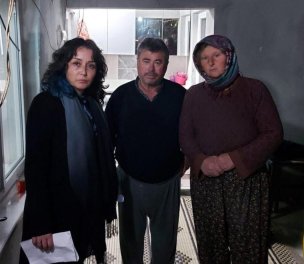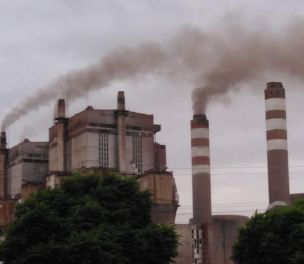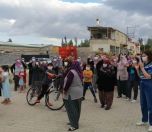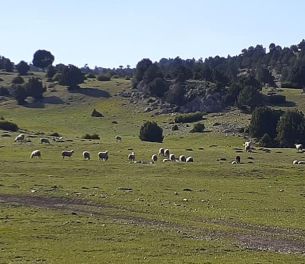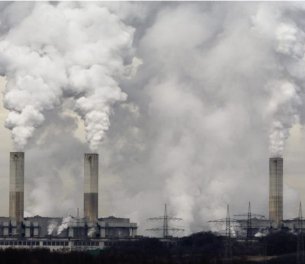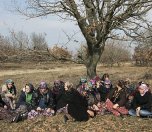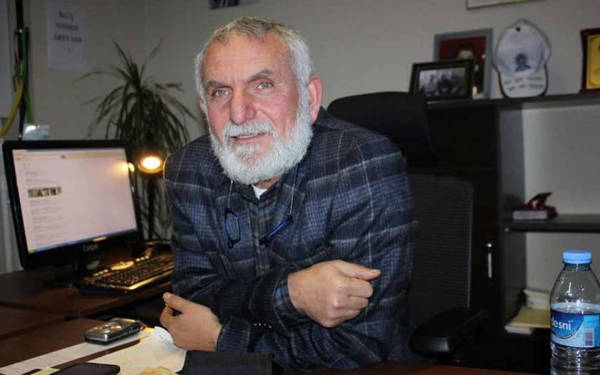Photo: Yeniköy-Kemerköy Electricity Production and Trade Inc. / Linkedin
Click to read the article in Turkish
A village in Milas, Muğla in western Turkey left without water for three days in the midst of the pandemic after an energy company allegedly cut off water.
The underground wells that meet the water needs of the İkizköy village are controlled by the Yeniköy-Kemerköy Electricity Production company, which has two coal-fired power plants in the area and wants to buy lands of villagers to build more, according to locals.
"Due to the thermal power plant and coal mines, lands of locals are gradually expropriated and converted into coal mines," says Deniz Gümüşel from the İkizköy Resistance group. "In June 2019, Yeniköy-Kemerköy Electricity Production and Trade Inc. requested to purchase the lands of three neighborhoods. When the villagers did not want to sell [ther lands], water cuts started."
"A neighborhood of İkizköy was expropriated in 2017. The company is now trying to take Karadam, Ova and Akbelen locations and add them to the mine land for expansion. Last June, the company sent a warning letter to the people of the region and stated that they wanted to take the lands.
"In the protest letter, it was written that if the villagers did not voluntarily accept the sale, their lands would be expropriated. Villagers started a resistance because they saw previous examples. Since then, villagers are often subjected to water cuts. We think the company uses it as blackmail."
"Wells are illegally operated by the company"
A thermal plant was launched in the region in 1986 and was privatized in 2014, Gümüşel informs. After IC İÇTAŞ and LİMAK companies bought the plant, they continued to operate the water wells, she says. "According to the Constitution and laws, groundwater belongs to the public, even the usage rights cannot be transferred to a natural or a legal person. But somehow those wells were transferred."
The water coming from 15 wells are used for the cooling of the plant, Gümüşel says, adding that villagers are left without water when the fill rate of the plant's water tanks falls below 90 percent.
In the region where people make a living with agriculture and animal husbandry, agricultural efficiency has decreased since the thermal power plant started operating, according to Gümüşel.
"Some of the young population has to work in thermal power plants and mines. Due to air pollution, water pollution and soil pollution, agricultural efficiency has decreased significantly. Once upon a time, this was a region where Turkey's best olives grew. Currently, the yield of olives has decreased by 60-70 percent.
"There are dozens of scientific studies and reports that say this is caused by the pollution caused by the mine and thermal power plant."
"There is no spring water anymore"
The coal mines in the area caused the spring water to dry up and therefore villagers cannot do large-scale agriculture anymore, she says.
When the water is cut-off, those who have animals bring water from nearby villages or the district center and pay for the water, but the cut-off during the epidemic was the last straw for the villagers, Gümüşel stresses.
"Even when the President instructs people to wash their hands, be hygienic, the people of İkizköy couldn't even access water to drink, let alone washing hands, and got extremely panicked.
"Because, the centers of the coronavirus epidemic in Muğla are Milas and Bodrum. People in the village are quite worried about coronavirus. According to what we heard, one person in the thermal plant had coronavirus. The water cut after that doubled the concerns.
"At a time when access to water is of such vital importance, the villagers' right to access to water, the most fundamental right, is restricted by a company." (HA/VK)






